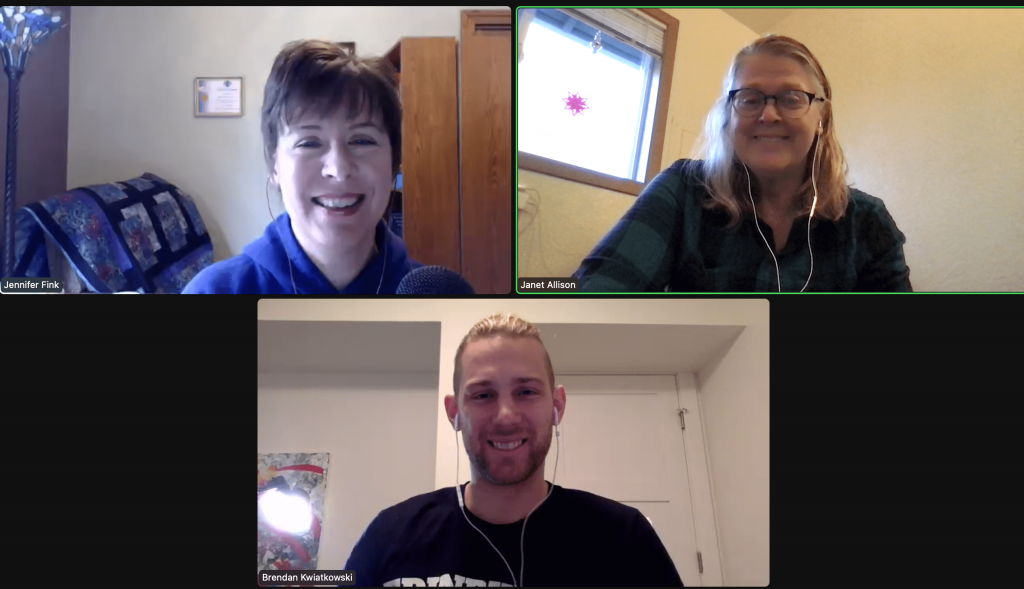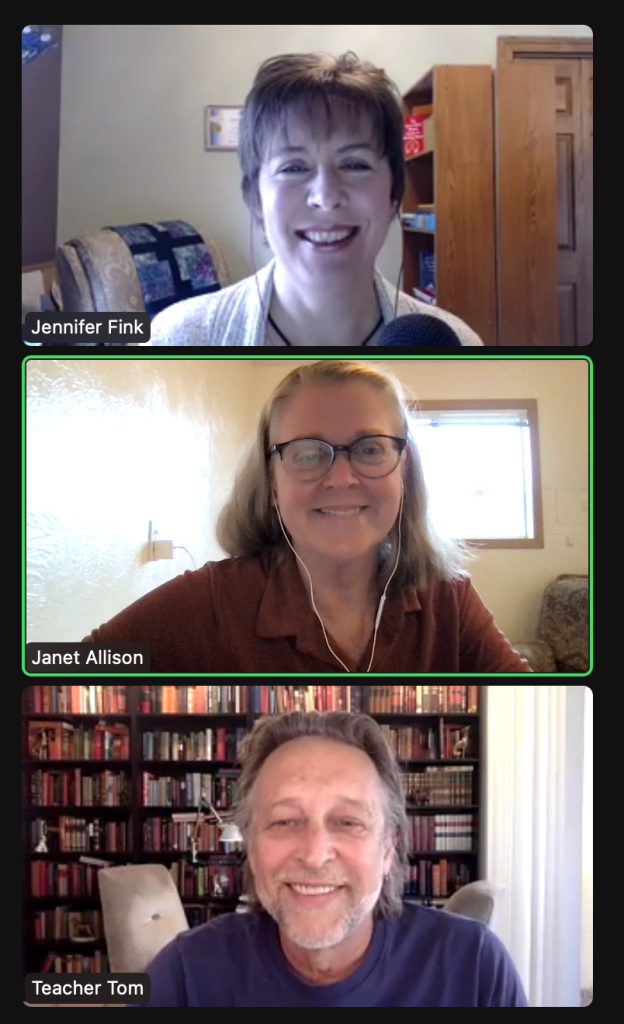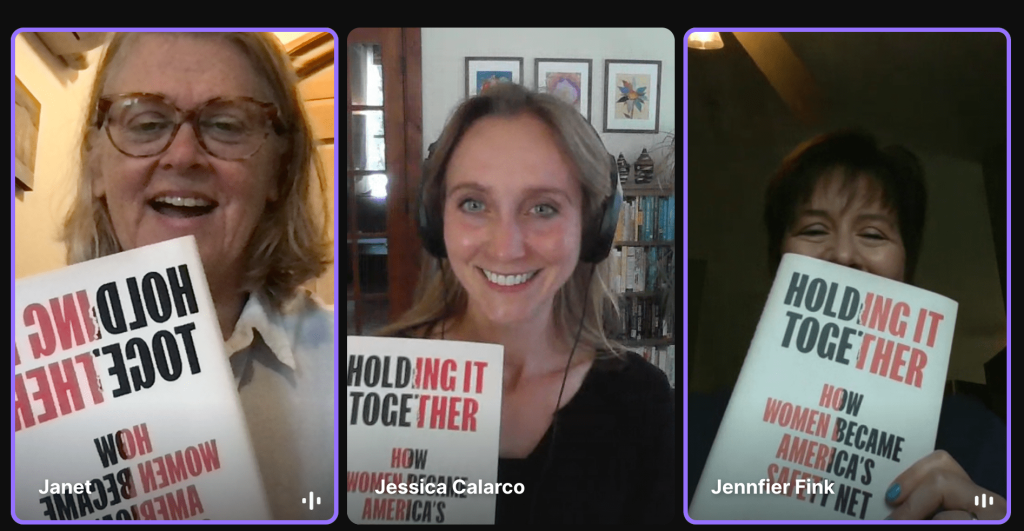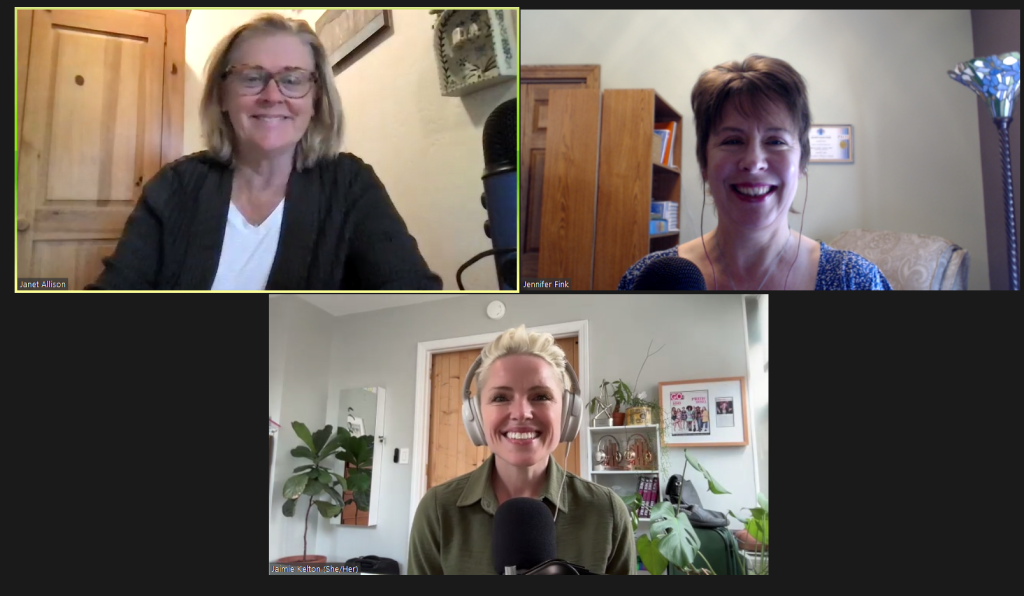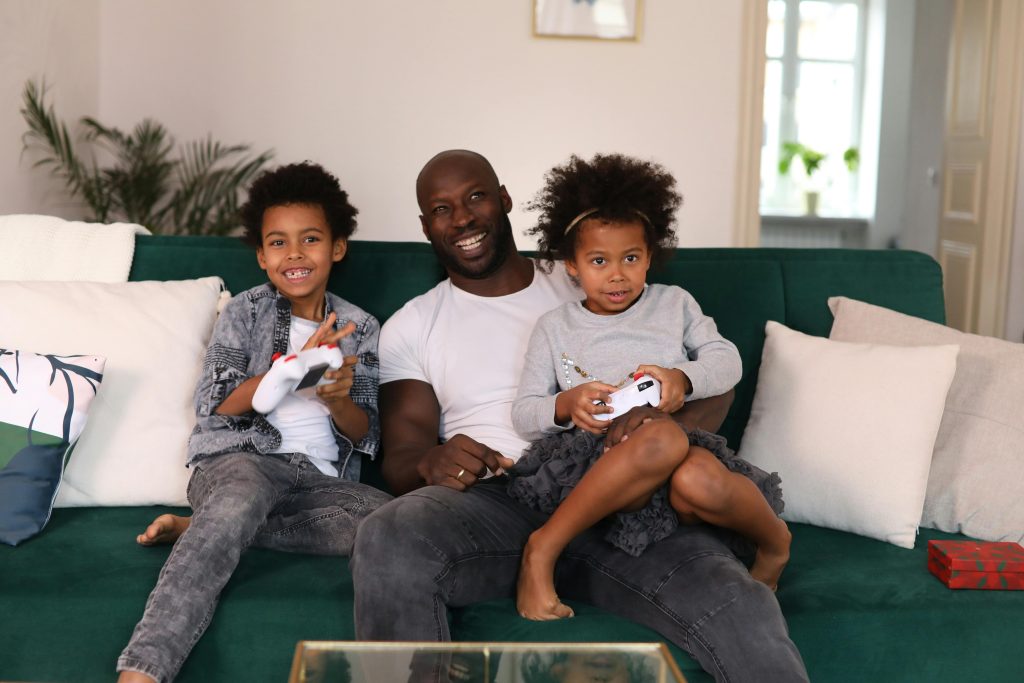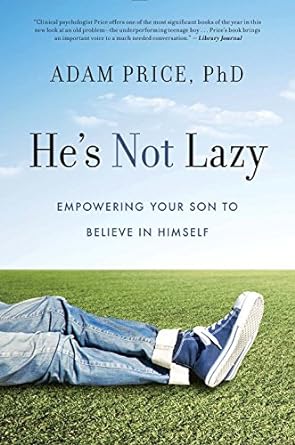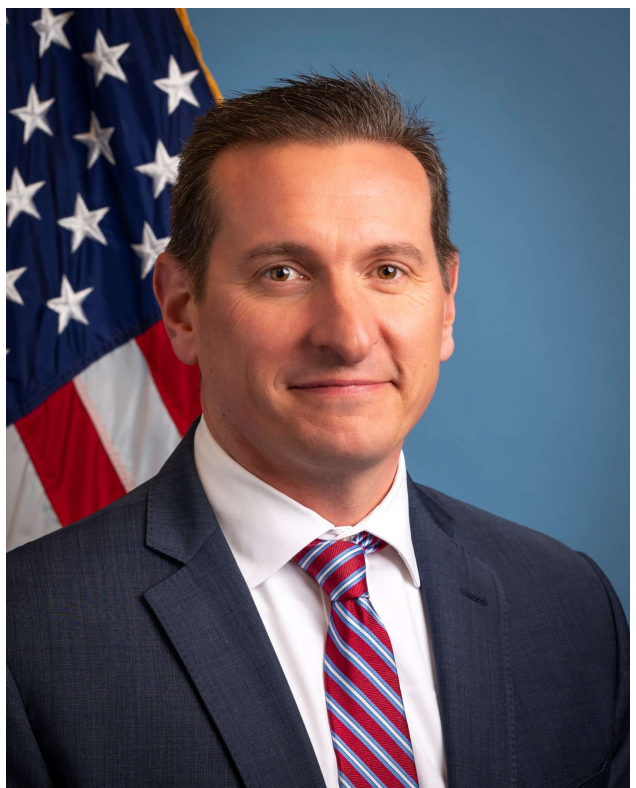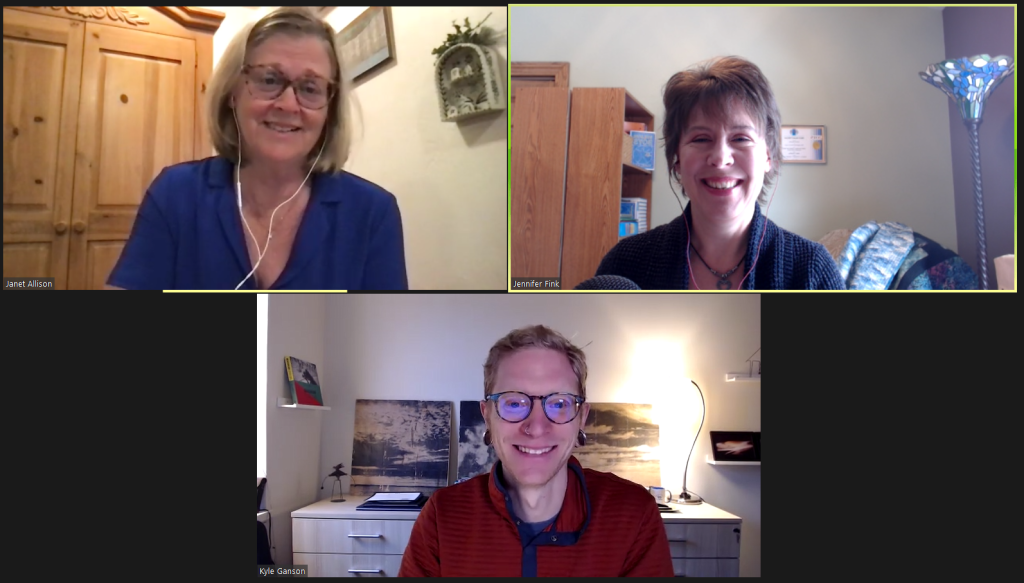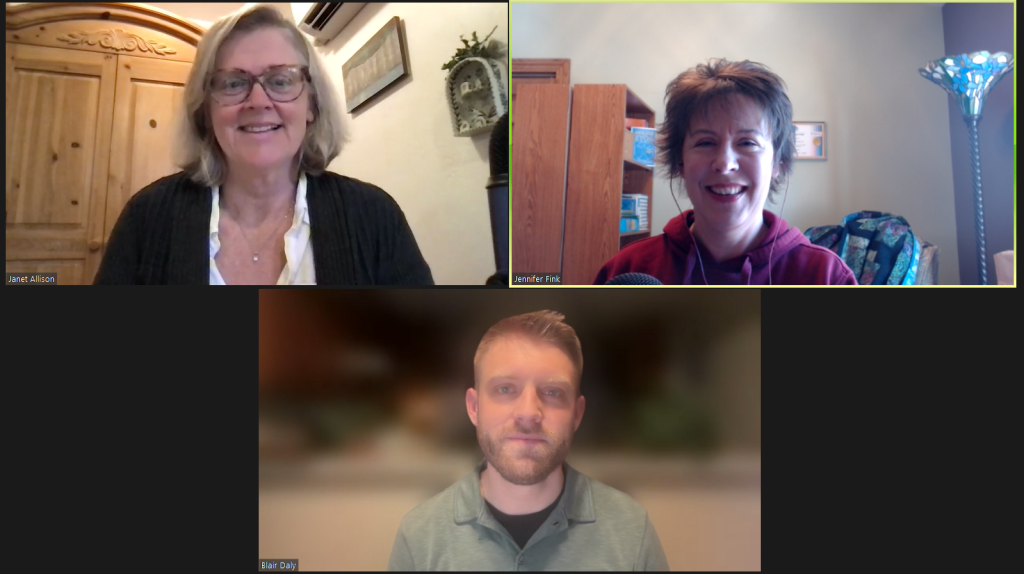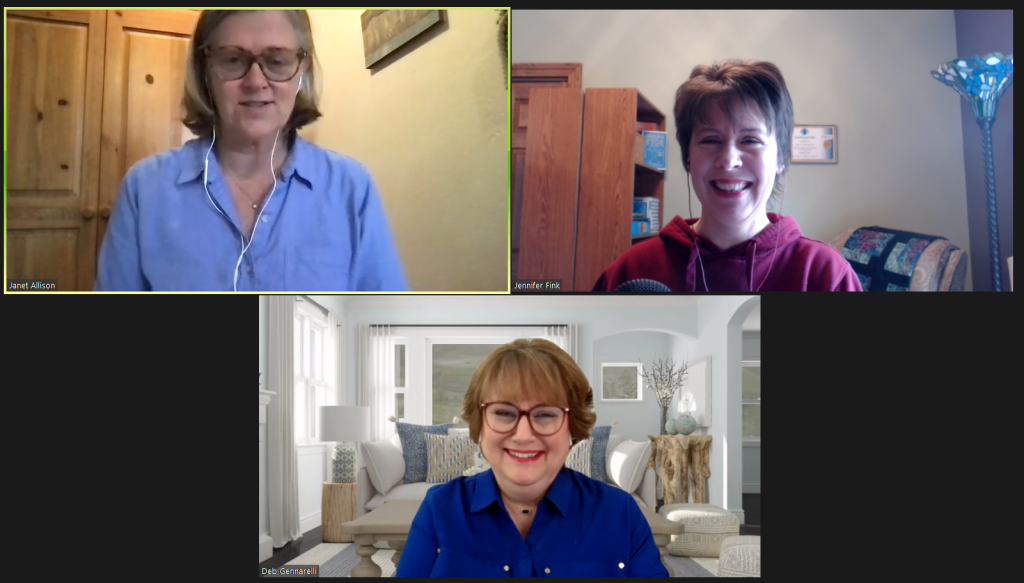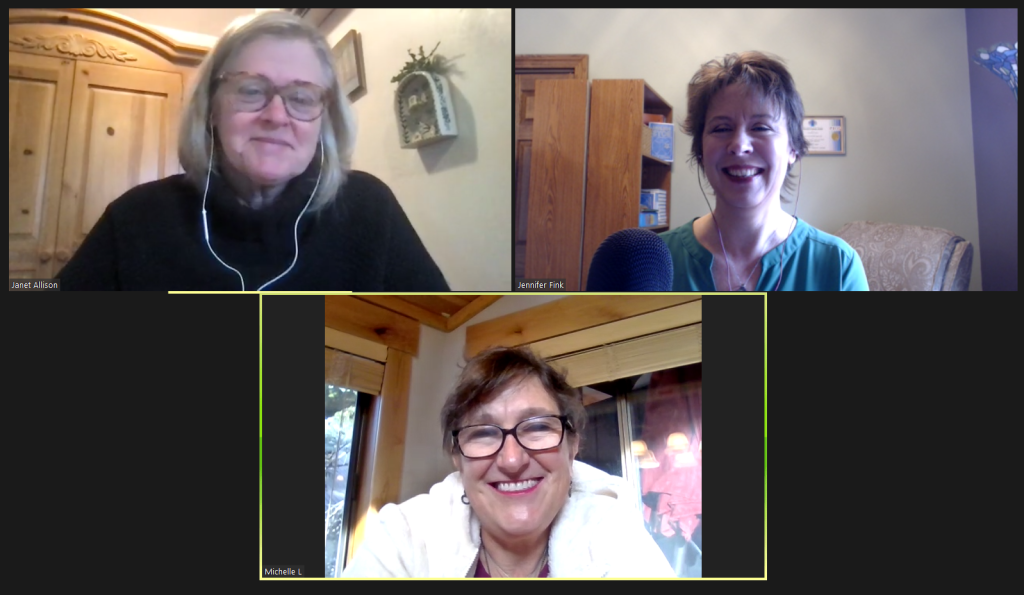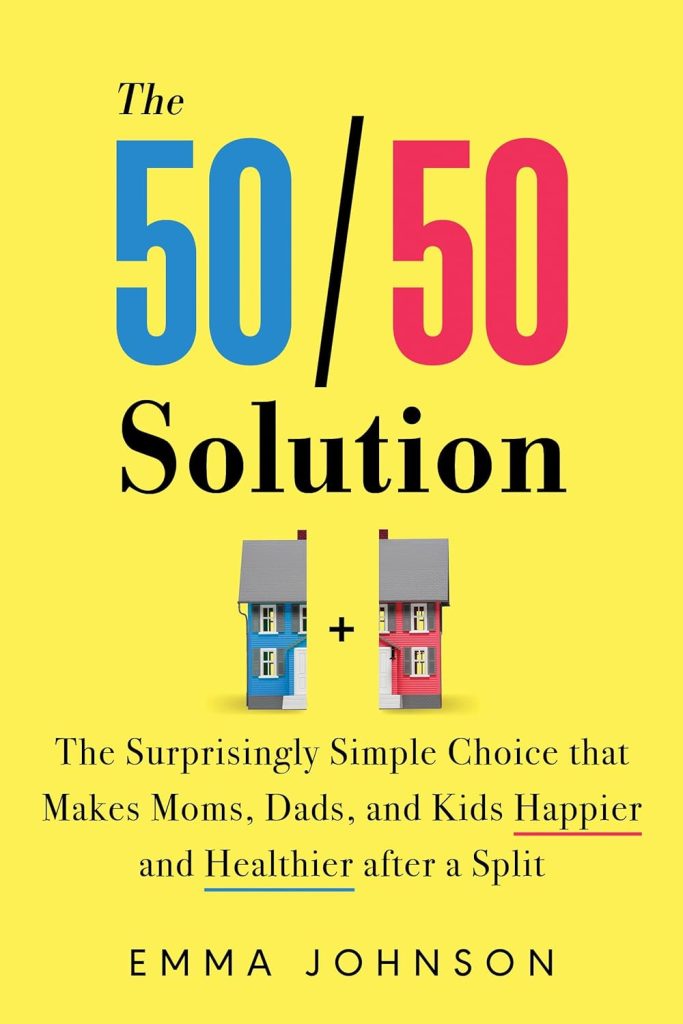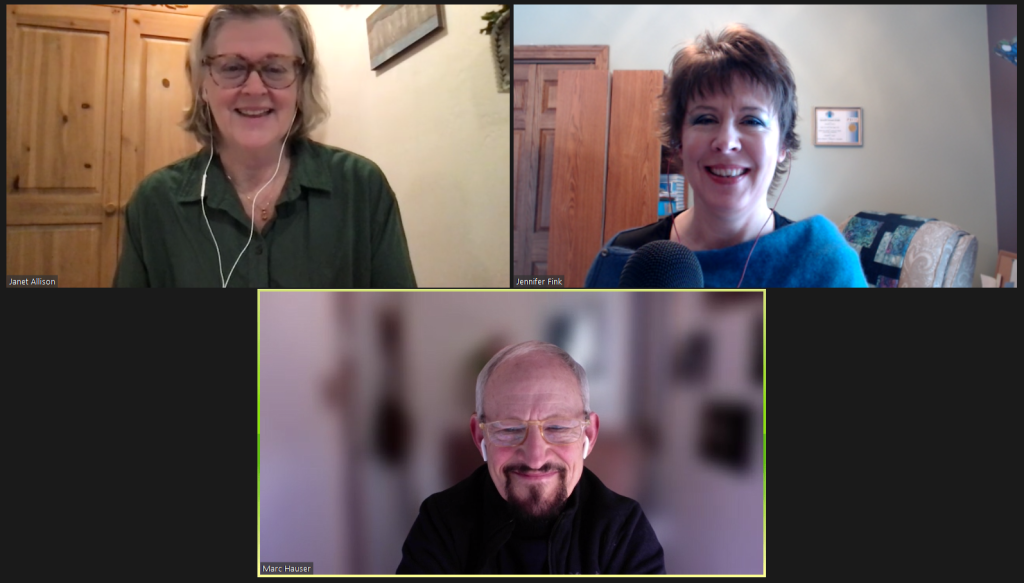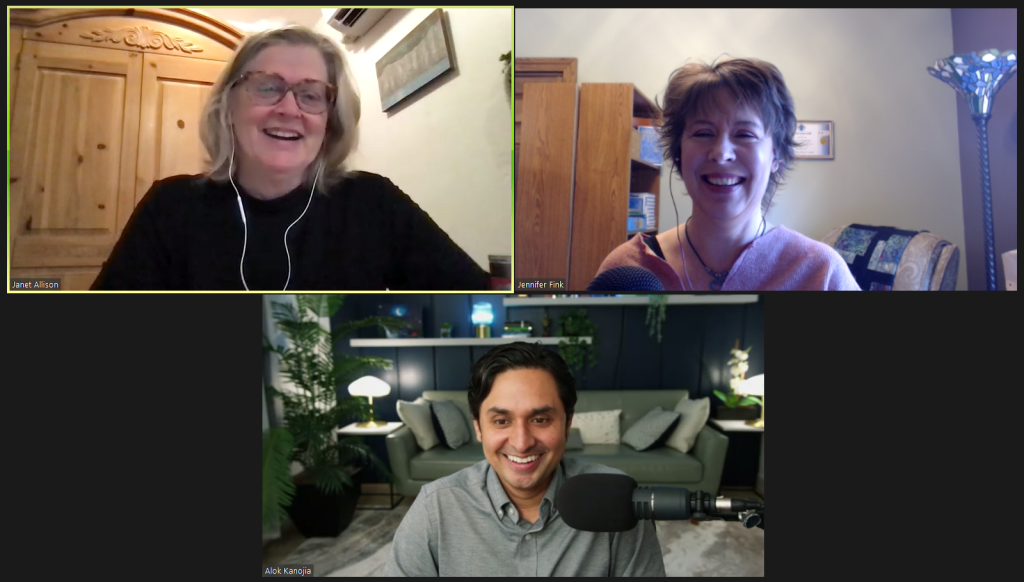- Jonathon Reed: To Connect with Boys, Listen
To connect with boys, you must first listen, says Jonathon Reed, program manager for NextGenMen.
Societal expectations of boys & men are gradually shifting. These shifting narratives are part of why it’s so important for adults to listen to boys. Adults’ interpretation and understanding of situations and interactions doesn’t necessarily reflect boys’ complex experiences, and neither does our language or approach.
“We’ve got to look to them as the leaders in this conversation,” Reed says.
Approach with Curiosity
Teens (and humans of all ages) tend to shut down and stop listening to people who don’t seem to be listening. By adolescence, most boys know that the world isn’t simply black or white; they’re ready to explore the grey. If you want to connect you boys, approach conversations with curiosity.
“Curiosity lays the possibility for an impactful conversation,” Reed says. Then, listen. Don’t dismiss what boys are telling you; dwell on the awkwardness they share and express.
Remember, too, that boys won’t necessarily tell you about their problems. “If boys are struggling, often they’re struggling in silence,” Reed says. “There’s still a stigma against asking for help, particularly when it also means admitting a weakness or a vulnerability.” Create a sense of safety to connect with boys.
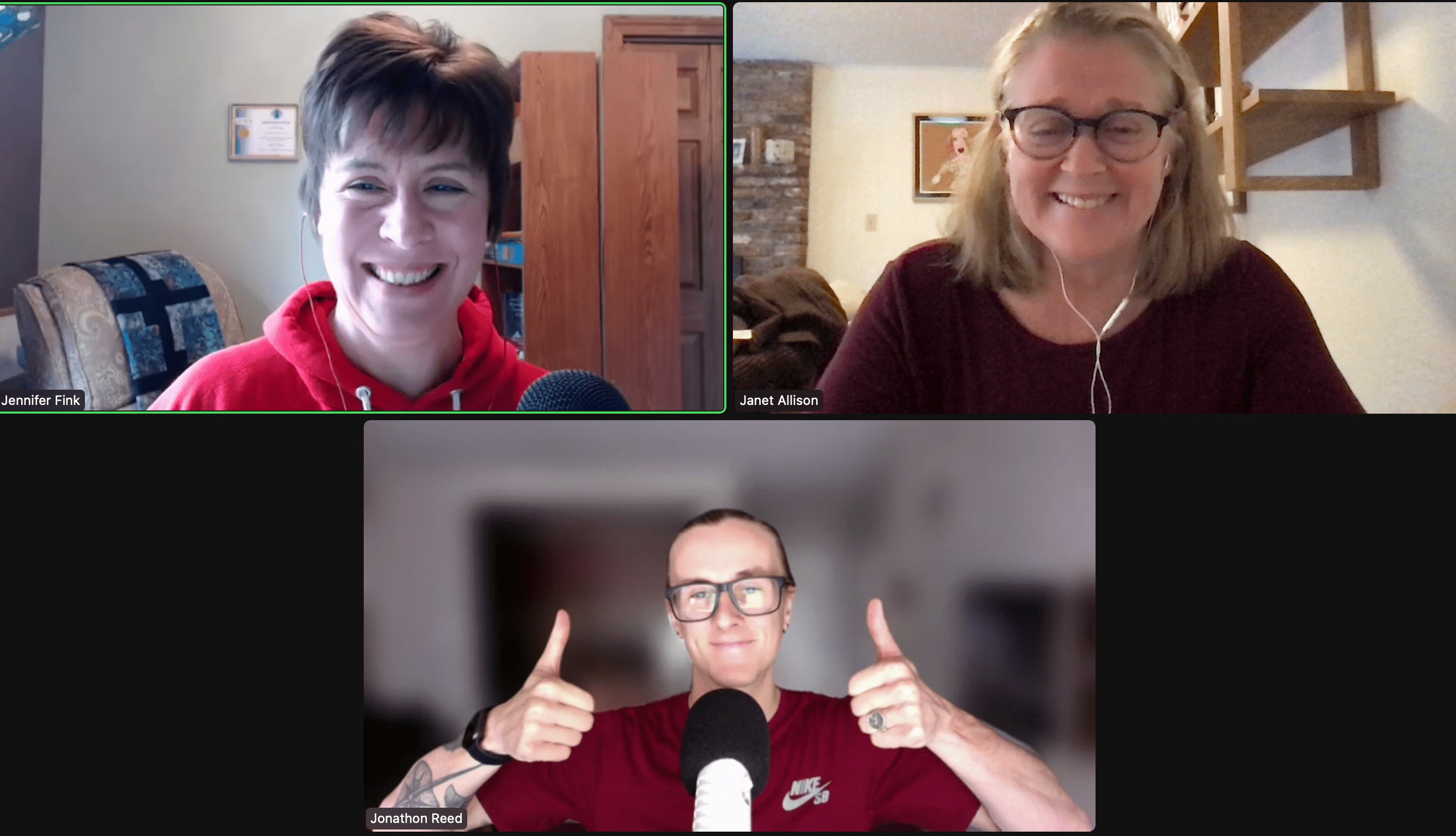
Links we mentioned (or should have) in this episode:
NextGenMen website
Raising Next Gen Men — ON BOYS episode
Breaking the Boy Code — ON BOYS episode
Teen Boys Emotional Lives — ON BOYS episode
Creating Consent Culture: A Handbook for Educators, by Marcia Baczynski and Erica Scott
Boys & Sex with Peggy Orenstein — ON BOYS episode
Sponsor Spotlight: ByHeart
Get 10% off your first order using code ONBOYS at byheart.com
Sponsor Spotlight: Dabble & Dollop
Natural bath products for kids. Visit dabbleandollop.com/onboys to get 20% OFF your first order!
Our Sponsors:
* Check out ByHeart and use my code ONBOYS for a great deal: byheart.com
* Check out Lumen: lumen.me/ONBOYS
Advertising Inquiries: https://redcircle.com/brands
Privacy & Opt-Out: https://redcircle.com/privacy46m - Jul 25, 2024 - Dr. Lisa Damour: Connecting with Teens
Dr. Lisa Damour says that adults should consider the barriers boys face when it comes to emotional connection and expression.
"Gender is such a huge force in how emotion is expressed, and perhaps even in how emotion is experienced," says Dr. Damour. "If a boy doesn’t feel that he has permission to let people know he’s hurting, it’s a good bet that he will discharge his unwanted emotions by acting out."
To Connect with Teens, Learn About Their Emotions
Dr. Damour served as an advisor on one of this summer's most popular films, Inside Out 2. (Haven't seen it yet? Go! It'll give you great insight into what's going on inside the brain of your teen.)

Boys may restrict their emotional expression due to societal pressures and gender norms. Dr. Damour highlights the stark contrast between the emotional expression allowed for girls and boys in our culture. Girls, she says, generally have a "wide emotional highway" to express a range of emotions, while boys are restricted to a "two-lane highway." And while it’s natural for humans to cry, boys who do so often face ridicule and social pressure, especially in environments like school.
Dr. Damour suggests that parents and educators can help boys by creating spaces for physical and alternative forms of emotional expression. Unlike the cultural preference for verbal expressions of emotion, many boys and men (and some girls, women, and nonbinary individuals) find relief through physical activities. Activities like shooting basketball hoops, running laps, or even banging on an old filing cabinet can be effective ways to discharge and process emotions.
"If it brings relief and does no harm, it’s a good coping strategy," Dr. Damour says. Additionally, music can be a powerful tool for many boys to express and regulate their emotions.
Practical Steps for Parents
To connect better with teenage boys and support their emotional development, parents can:
- Create Safe Spaces for Emotional Expression: Encourage physical activities that help boys process their emotions. Sports, music, or even creative projects can provide an outlet for their feelings.
- Acknowledge and Respect Gender Norms: Understand the societal pressures boys face and offer support without reinforcing harmful stereotypes. Validate their feelings and encourage healthy expression.
- Set Clear Expectations: While understanding the pressures boys face, maintain clear expectations for respectful and kind behavior. Teach boys that while it's okay to feel anger or frustration, it's not okay to express these emotions through harmful actions.
- Model Emotional Intelligence: Show boys how to handle emotions by modeling emotional intelligence in your behavior. Demonstrate how to talk about feelings and handle stress constructively.
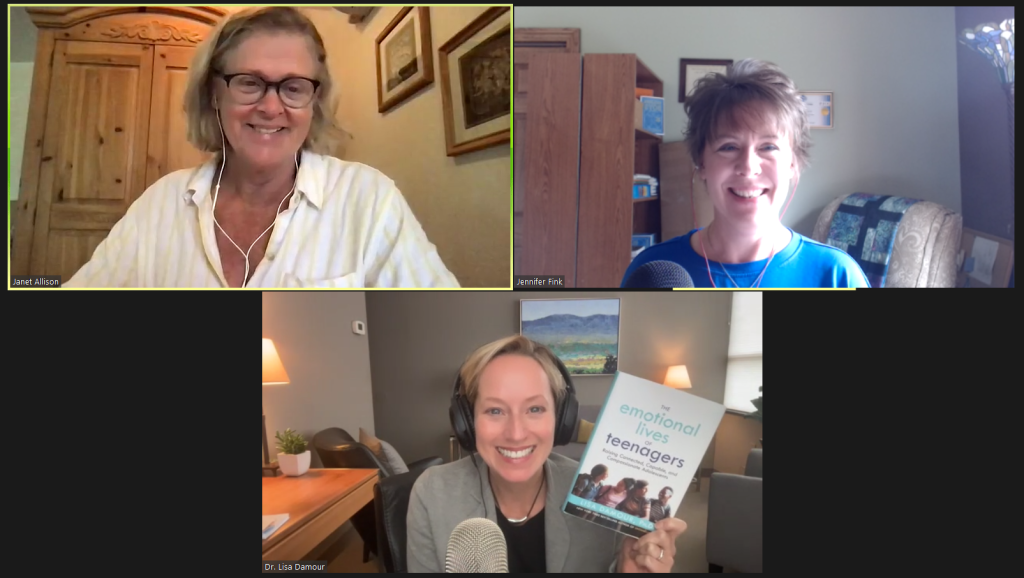
Links we mentioned (or should have) in this episode:
drlisadamour.com – Lisa’s website
The Emotional Lives of Teenagers: Raising Connected, Capable, and Compassionate Adolescents — Lisa’s latest book (get the free parent discussion guide here)
Ask Lisa: The Psychology of Parenting – podcast hosted by Lisa Damour & Reena Ninan
Teen Boys’ Emotional Lives — ON BOYS episode
Managing Emotions — ON BOYS episode
Nonverbal Communication with Boys — ON BOYS episode
Sponsor Spotlight: Lumen
Understand your metabolism! Go to lumen.me/ONBOYS to save 15% on Lumen
Sponsor Spotlight: Dabble & Dollop
Natural bath products for kids. Visit dabbleandollop.com/onboys to get 20% OFF your first order!
Our Sponsors:
* Check out ByHeart and use my code ONBOYS for a great deal: byheart.com
* Check out Lumen: lumen.me/ONBOYS
Advertising Inquiries: https://redcircle.com/brands
Privacy & Opt-Out: https://redcircle.com/privacy45m - Jul 18, 2024 - Brendan Kwiatkowski: Connecting w Teen Boys
Brendan Kwiatkowski knows that connecting with teenage boys requires understanding, patience, and a willingness to create a safe emotional space.
Kwiatkowski, PhD, a renowned researcher specializing in boys’ emotions, experiences, and masculinities, says that teen boys “assume most people don’t want to hear about their negative emotions.”
Helping Boys Express Their Emotions
One of the key factors in a boy’s ability to express his emotions is his parents’ response to his distress. If a boy knows that his anger, sadness, or frustration will upset his parents’ equilibrium, he is more likely to stifle his emotions. On the other hand, if he feels that his parents will respond with calm compassion, he is more likely to share his feelings honestly.
It’s important for parents to create a supportive environment where their sons feel safe to express themselves. This means responding to their emotions without judgment or immediate solutions, simply listening and validating their feelings. Don’t fret if you don’t always respond perfectly. It’s okay to miss the mark sometimes. Research has shown that parents can miss the mark 70% of the time and still raise well-adjusted children, as long as they apologize and strive to make things right when they falter.
Encouraging Teen Boys to Talk
Interestingly, Kwiatkowski’s research shows that teenage boys are often most comfortable opening up to women. Therefore, moms have a unique opportunity to foster a deeper connection with their sons by being approachable and supportive listeners.
Modeling authenticity and vulnerability is another powerful way to encourage boys to open up. Kwiatkowski emphasizes the importance of being genuine and honest with your own emotions. “I never would expect a teenage boy to be honest with me if I’m not demonstrating that myself,” he says. Acknowledging the contradictions and tensions in being a boy or man and discussing these openly can help create a more trusting and open dialogue.
Links we mentioned (or should have) in this episode:
remasculine.com — Brendan’s website
Re: Masculine — Brenda’s album about masculinity
Hold Onto Your Kids: Why Parents Matter More Than Peers, by Gordon Neufeld and Gabor Mate — book recommended by Brendan Kwiatkowski
What You Need to Know About Boys & Suicide (w Katey McPherson) — ON BOYS episode
Sponsor Spotlight: Lumen
Understand your metabolism! Go to lumen.me/ONBOYS to save 15% on Lumen
Sponsor Spotlight: Dabble & Dollop
Natural bath products for kids. Visit dabbleandollop.com/onboys to get 20% OFF your first order!
Our Sponsors:
* Check out ByHeart and use my code ONBOYS for a great deal: byheart.com
* Check out Lumen: lumen.me/ONBOYS
Advertising Inquiries: https://redcircle.com/brands
Privacy & Opt-Out: https://redcircle.com/privacy50m - Jul 11, 2024 - Teacher Tom on Connections & Play-Based Learning
Teacher Tom says “kids haven’t changed at all” over recent decades.
“Kids still need freedom to play, to follow their own curiosity,to ask and answer questions,and to learn how to get along with other people,” he says.
Nurturing Kids & Building Connections
The first five years of a child’s life “should be about how to live with these complicated things called emotions,” Tom says.
Children also need time and space to navigate emotions and social interactions. But “too often, we step in too soon,” Tom says. When adults hear bickering, arguing, or tears, they frequently step in and problem solve for the kids — which can adversely affect child development.
“We rob them of the chance to learn that basic skill of self-governance and self-control,” Tom says. Give the kids time. Left to their own devices, kids often come up with innovative solutions.
Links we mentioned (or should have) in this episode:
Teacher Tom — Tom’s blog
Teacher Tom’s World — includes links to Teacher Tom’s courses, books, & speaking events
Teacher Tom Talks About Boys, Emotions, & Play — ON BOYS episode
The Gardener & the Carpenter: What the New Science of Child Development Tells Us About the Relationship Between Parents & Children, by Alison Gopnik — book mentioned by Teacher Tom
The Link Between Freedom & Video Games — BuildingBoys post
Why You Need to Stop Focusing on Your Boys’ Bickering — BuildingBoys post
Sapiens: A Brief History of Humankind, by Yuval Harari — book mentioned by Teacher Tom
Sponsor Spotlight: Lumen
Understand your metabolism! Go to lumen.me/ONBOYS to save 15% on Lumen
Sponsor Spotlight: Dabble & Dollop
Natural bath products for kids. Visit dabbleandollop.com/onboys to get 20% OFF your first order!
Our Sponsors:
* Check out ByHeart and use my code ONBOYS for a great deal: byheart.com
* Check out Lumen: lumen.me/ONBOYS
Advertising Inquiries: https://redcircle.com/brands
Privacy & Opt-Out: https://redcircle.com/privacy48m - Jul 4, 2024 - Women are America’s Safety Net & That’s a Problem for Boys
Women are America’s safety net.
Women provide the vast majority of child and elder care and care for the disabled. Women do the bulk of home- and community-tending, and they create and reinforce the ties that bind us together. Most of that labor is unpaid — and the little that is paid is typically poorly compensated.
This imbalance is clearly problematic for women, who are often exhausted and overworked. But it’s also a problem for boys, men, girls, and, well, everyone. If we don’t talk about this imbalance, our sons will grow up in a system that still devalues care work. They’ll see women, predominantly, as caregivers, and may conclude – incorrectly – that they’re not capable of childcare or elder care. Others may also assume that our boys and men aren’t capable of care.
How Our DIY Society Tricked Us All
Other countries use social safety nets to manage risk, says sociologist Jessica Calarco, author of Holding It Together: How Women Became America’s Safety Net. In contrast, the US “tries to DIY society,” Calarco says, essentially telling people “that if they just make the right choices for their kids and families, then they won’t actually need any support.”
That’s a lie, though. We all need help and support at various time throughout life. But “women’s unpaid and underpaid labor is maintaining this illusion that we can get by without a social safety net” in the United States, she says.
Busting Gender Stereotypes
From the time girls are old enough to hold a baby doll, we’re training them to be mothers. We don’t do the same for boys, at least not on a society-wide scale.
“Boys are often denied the opportunity to learn to be caregivers,” Calarco notes.
Despite the ubiquity of the Mars/Venus myth, which suggests that females are better suited to caregiving than males, there’s no solid scientific evidence to back up that assertion. “If anything, much of what we perceive as these innate gender differences roots back to early socialization,” Calarco says. “Even as young as infancy, adults treat babies differently if they perceive it to be a girl versus if they perceive it to be a boy.”
Research shows that the more caregiving experience an individual has, the more that person’s body will respond physiologically — by pumping out hormones like oxytocin — to caregiving activities. “This happens for both men and women,” Calarco says. “The more experience you have in caregiving capacities, the better at it you get.”
But while parents (and society at large) are now widely supportive of girls who bend traditional gender boundaries, they are much less comfortable with boys who bend and challenge gender stereotypes. Many parents (and grandparents) still aren’t comfortable giving boys dolls or letting them play house.
“This is a place where we can intervene,” Calarco says. “We can hold up examples of kids and adults pushing back against these boundaries and binaries. We can let them know ‘there’s many, many different ways to be a girl and many different ways to be a boy.’ And I think the more that we can encourage that kind of gender flexibility for both our boys and our girls, the better off they will be.”
Takeaways:
- Women are the safety net of America, providing unpaid and underpaid labor that holds everything together
- Systemic issues affect boys and families
- Devaluation of care work impacts societal perceptions of caregiving roles
- How neoliberalism and the myth of individualistic success have led to the exploitation of women’s labor
- The Mars/Venus myth perpetuates gender stereotypes and societal attitudes that devalue caregiving and reinforce gender hierarchies
- Fundamental shifts in societal attitudes and policies are necessary to address systemic issues and create a more equitable society
- Change begins at home, with the need to challenge gender roles and encourage caregiving experiences for both boys and girls
Links we mentioned (or should have) in this episode:
Holding It Together: How Women Became America’s Safety Net — Jessica’s book
Kate Mangino on Teaching Boys to Be Equal Partners — ON BOYS podcast
Nursing, Boys, & Gender Stereotypes — 4-15-24 Building Boys Bulletin
Sponsor Spotlight: Dabble & Dollop
Natural bath products for kids. Visit dabbleandollop.com/onboys to get 20% OFF your first order!
Sponsor Spotlight: Armoire
Clothing rental subscription that makes getting dressed easier. Visit armoire.style/ONBOYS to get up to 50% OFF your first month.
Our Sponsors:
* Check out ByHeart and use my code ONBOYS for a great deal: byheart.com
* Check out Lumen: lumen.me/ONBOYS
Advertising Inquiries: https://redcircle.com/brands
Privacy & Opt-Out: https://redcircle.com/privacy43m - Jun 27, 2024 - Navigating Parenthood Beyond Stereotypes with Jaimie Kelton
Like most moms, Jaimie Kelton has “so many thoughts & fears on raising a boy.”
“I question myself constantly,” says Jamie, host of The Queer Family podcast and mom to two children, a 10-year-old daughter & a 6-year-old son. She knows that gender is a social construct — and also knows that gender stereotypes are extremely powerful and prevalent. When she was pregnant with her son, Jamie says, she worried that she wouldn’t be able to connect with him.
In this episode, Jaimie shares her journey and thoughts on raising a boy within a society that holds strong gender stereotypes, while also highlighting the unique challenges and joys faced by queer families.
Key Topics:
- Parenting Fears & Self-Doubt: Jaimie opens up about the common fears and constant self-questioning she experiences as a mom. Despite her awareness that gender is a social construct, she acknowledges the pervasive influence of gender stereotypes in society.
- Facing Stereotypes: While Jaimie and her wife offer their son a variety of toys and activities, he gravitates towards traditionally “boy” interests such as cars, trucks, planes, and the color blue.
- Support & Acceptance: Jaimie discusses the importance of supporting children in becoming their true selves. She emphasizes the need to parent the child you have, not the one you envisioned.
- Intentional Parenting: As part of a queer family, Jaimie highlights the intentionality required in their parenting journey. From conception to daily life, every step is deliberate and meaningful.
- Challenging Norms: Facing societal prejudice, including attempts to ban books featuring families like hers, queer families must continually think outside the box. Often, they discover joy in creating a unique lives that defy conventional paths.
- Encouragement for Other Parents: Jaimie underscores the idea that joy and fulfillment can be found by embracing one’s unique family structure and parenting style.
Memorable Quotes:
- “We want our kids to feel free to be who they are.”
- “We’re really good at thinking outside the box because we don’t fit the normal path.”
- “These are the most intentional parents. There’s no accidents in how we make a family.”
Links we mentioned (or should have) in this episode:
The Queer Family podcast — Jaime’s podcast
Supporting LGBTQ+ Kids — ON BOYS episode
Understanding Gender with Dr. Alex Iantaffi — ON BOYS episode
Sponsor Spotlight: Armoire
Clothing rental subscription that makes getting dressed easier. Visit armoire.style/ONBOYS to get up to 50% OFF your first month.
Our Sponsors:
* Check out ByHeart and use my code ONBOYS for a great deal: byheart.com
* Check out Lumen: lumen.me/ONBOYS
Advertising Inquiries: https://redcircle.com/brands
Privacy & Opt-Out: https://redcircle.com/privacy43m - Jun 20, 2024 - Emily Edlynn on a Healthier Approach to Tech
Child psychologist Emily Edlynn says a healthier approach to tech is good for the whole family.
As she wrote in her Substack newsletter, the currently popular shame-blame-restrict approach to social media, screens, and gaming isn’t working particularly well. Emily sas:
Parents’ hyper-focus on screen time, gaming, or phones can have more negative effects than the technologies on their own. Parents can become so fixated on maintaining the limits that the fixation itself causes a child’s or teen’s frustration and subsequent distancing from their parents.
Social Media, Video Games, & Phones Aren’t the Cause of Mental Health Problems
Contrary to popular belief, smartphone and screens are not solely responsible for the current mental health crisis.
“I’m always skeptical is there’s a straight line drawn from any one thing to mental health,” Emily says. “That’s not how mental health works. It’s very complex, nuanced, layered, and full of contributing factors.” In fact, tech overuse can be a symptom, not a cause of mental health problems.
“It’s really important not to blame the tech but to get under it & explore what’s going on,” Emily says.
So, parents: take a breath. Giving your child a smartphone does not doom them to anxiety or depression. It is much healthier to step away from the fear and approach technology as a tool.
“When parents take more of a mentorship approach to online activity and social media, the kids do better with it,” Emily says.
Fighting About Tech Isn’t Helpful. Here’s a Healthier Approach to Tech.
Parents and children often have vastly different views of (& goals for) technology. These differing views often come into conflict. And in many cases, that escalates into a problem.
“The conflict around technology can cause more harm than the technology itself,” Emily explains. Kids may feel misunderstood, alienated, and not trusted. And parental guilt and stress around technology is harming both parents & kids.
Although it may not seem like it during the tween & teenage years, our kids want to be connected with us. When they don’t feel connected to us due to high and constant conflict, they suffer (often, in ways we can’t see).
Focus on the connection with your child instead of focusing on the tech.
Photo by Photo by KoolShooters via Pexels
Takeaways:
- Parents should focus on balance and individualized approaches to technology use rather than blaming technology for mental health issues.
- Open dialogue and empathy are key in discussing technology use with children and teenagers.
- Technology can be addictive, and it is important to develop critical thinking skills and awareness of its impact.
- The goal is to raise children who have a good internal sense of balance and can make healthy choices in the digital world.
Links we mentioned (or should have) in this episode:
Autonomy-Supportive Parenting: Reduce Parental Burnout and Raise Competent, Confident Children, by Emily Edlynn
www.emilyedlynnphd.com — Emily’s website
The Art & Science of Mom — Emily’s Substack (Be sure to check out Fortnite Creep)
Fortnite is Not a Waste of Time — Building Boys post
Autonomy-Supportive Parenting — ON BOYS episode featuring Emily
How Our Feelings About Technology Affect Our Kids — newsletter by Melinda Wenner-Moyer (mentioned by Emily)
Melinda Wenner Moyer: Raising Boys Who Aren’t Assholes — ON BOYS episode
Sponsor Spotlight: Armoire
Clothing rental subscription that makes getting dressed easier. Visit armoire.style/ONBOYS to get up to 50% OFF your first month.
Our Sponsors:
* Check out ByHeart and use my code ONBOYS for a great deal: byheart.com
* Check out Lumen: lumen.me/ONBOYS
Advertising Inquiries: https://redcircle.com/brands
Privacy & Opt-Out: https://redcircle.com/privacy44m - Jun 13, 2024 - Adam Price: “He’s Not Lazy”
Dr. Adam Price’s book, He’s Not Lazy, is one that parents of teenage boys frequently recommend to each other.
There’s good reason for that: He’s Not Lazy: Empowering Your Son to Believe in Himself addresses parents’ fears and concerns about their “unmotivated,” “under-performing” teenage sons.
Stop Worrying About Your Boys
Fear is usually at the heart of parents’ concern about their sons’ apparent lack of motivation. We know how important persistence and effort are to success and happiness in life, and we worry that our teenage sons will fail. But our worry is misplaced — and unhelpful, Dr. Price says.
“It’s imperative that you stop worrying,” he says, noting that “it’s the worrying that often causes us to make the wrong decisions in parenting.”
Don’t project into the future, he says. Focus on the here and now. Connect with your son; trust in his development.
Motivating Boys
Human beings are motivated to do the things we want to do. We are not necessarily motivated to do things we have to do.
That truth applies to our boys as well – & explains why so many boys are “unmotivated” to do their homework or chores. To get boys to do things, we need to give them more autonomy. And we need to let them experience consequences and emotions.
Too often, parents take on all the emotional and psychological labor related to boys’ performance in school. “We end up absorbing like a sponge all the negative feelings: You’re not going to do well. You’re not going to get into college,” Dr. Prica says. “What that actually does is free kids up to not worry about it because they know that we’re worrying about it.”
It’s better to let kids feel that conflict and struggle, to allow them space to worry about their future. Their concern for their future will motivate them in a way your concern never will.
Do NOT say, “you’re not living up to your potential.”
“When you tell someone, ‘You’re not living up to your potential,” you’re telling them, ‘You’re not good enough,'” Dr. Price says. Instead, focus on connecting with and empowering your son. Give him autonomy and continued support. Set limits, establish structure, and be patient. Give him the opportunity to grow and mature.
Takeaways:
- Parents should try to stop worrying excessively about their underperforming teenage boys and trust in their growth and development.
- Teenagers are still young and have a lot of time for growth and change.
- Motivation comes from doing things one wants to do, not things one has to do.
- Parents should allow their sons to experience the consequences of their decisions and not shield them from negative feelings.
- Recognize and value different forms of achievement, including skills in video games.
- Parents should praise the process and effort rather than just the end result.
- Gender expectations and societal pressures can influence boys’ motivation and self-esteem. Challenge negative assumptions about boys’ motivation and behavior.
- Set realistic expectations and give kids the opportunity to take responsibility for their actions.
- Recognize that development takes time and maturity may happen at different rates.
- Trust the relationship with your child and focus on building a positive and supportive environment.
Links we mentioned (or should have) in this episode:
He’s Not Lazy: Empowering Your Son to Believe in Himself, by Adam Price
hesnotlazy.com — Adam’s website
Listener Q & A:Getting Curious & Motivating Boys — ON BOYS episode
Maggie Dent on How to Motivate Boys — ON BOYS episode
Trust Your Boys — Building Boys blog post
Sponsor Spotlight: Dabble & Dollop
Natural bath products for kids. Visit dabbleandollop.com/onboys to get 20% OFF your first order!
Sponsor Spotlight: Armoire
Clothing rental subscription that makes getting dressed easier. Visit armoire.style/ONBOYS to get up to 50% OFF your first month.
Jen in an Armoire dress
Our Sponsors:
* Check out ByHeart and use my code ONBOYS for a great deal: byheart.com
* Check out Lumen: lumen.me/ONBOYS
Advertising Inquiries: https://redcircle.com/brands
Privacy & Opt-Out: https://redcircle.com/privacy42m - Jun 6, 2024 - BoyMom Ruth Whippman on Reimaging Boyhood
BoyMom Ruth Whippman has spent significant time reimagining boyhood.
As a mom of 3 boys, she knows that raising boys today is a complex endeavor. As she writes in her book, BOYMOM: Reimagining Boyhood in the Age of Impossible Masculinity, “Boys in America (and worldwide) are going through something of a crisis – not only academically but they make up the majority of perpetrators AND also the majority of victims and they are more likely than girls to engage in serious antisocial behavior, along with having mental health issues reaching epidemic levels…Understanding where we are going wrong with raising boys and trying to change those patterns is one of our most urgent cultural projects as a society.
“This is a half-finished revolution.”
The #MeToo Movement, Boys, & Men
Ruth was 8 1/2 months pregnant with her 3rd son when the #MeToo movement gained global traction.
“That moment was a really complex moment for me,” she says. “On the one hand, my feminist self was like, Great! we’re finally talking about boys & men in a whole new way; we’re finally seeing this is a systemic problem…. But as a mother of boys, it was really complicated because there was this very negative conversation going on about boys and men, which I don’t think is particularly psychologically healthy for boys to grow up hearing.”
It’s important to recognize and address all of the issues that lead to some men behaving badly, but, she says, it’s important to also “give boys a more hopeful vision.” Focusing on what’s wrong with boys and men won’t likely solve anything & may instead alienate and harm boys & men.
Cultural Blind Spots
Like many women, Ruth was well aware of the all ways in which gender & sex shape (& limit) females’ experiences in the world. But she didn’t understand that boys are affected by similar pressures. Until she had sons.
We “have so many blind spots around raising boys,” she says. And while our society has made great strides in encouraging girls, women, nonbinary, and genderfluid humans, cis boys are still hemmed in by cultural expectations and stereotypes. In our current cultural moment, conversations about boys frequently focus on their potential to cause harm.
That’s problematic, Ruth says.
“I want my boys to have a narrative about themselves that’s rooted in something other than harm and violence,” she says. “I don’t want their story to just be ‘I’m this potential predator and the best that I can hope for my life is that I won’t rape anybody.‘ I want them to also be able to thrive and find pride, joy, and connection.”
In this episode, Jen, Janet, & Ruth discuss:
- Parenting boys as a feminist
- Why politicizing boys’ issues isn’t helpful – & why we need to listen to diverse viewpoints
- Seeing boys as more than potential predators
- Boys & school
- Male development
- How “undercare” harms boys
- The stories we share w boys
- Boys’ friendships
- Listening to boys
- The “contradictory pressures” on boys
Links we mentioned (or should have) in this episode:
BOYMOM: Reimagining Boyhood in the Age of Impossible Masculinity — Ruth’s book
ruthwhippman.com — Ruth’s website (includes links to her upcoming events)
I Blame Society — Ruth’s Substack newsletter
Masculinity in the Land of #MeToo — ON BOYS episode
Men are Not Monsters – 2015 essay by Jen
Sponsor Spotlight: Dabble & Dollop
Natural bath products for kids. Visit dabbleandollop.com/onboys to get 20% OFF your first order!
Sponsor Spotlight: Armoire
Clothing rental subscription that makes getting dressed easier. Visit armoire.style/ONBOYS to get up to 50% OFF your first month.
Sponsor Spotlight: ByHeart
Get 10% off your first order using code ONBOYS at byheart.com
Our Sponsors:
* Check out ByHeart and use my code ONBOYS for a great deal: byheart.com
* Check out Lumen: lumen.me/ONBOYS
Advertising Inquiries: https://redcircle.com/brands
Privacy & Opt-Out: https://redcircle.com/privacy44m - May 30, 2024 - Connecting With Boys & Answering Your Questions
In this episode, Jen & Janet discuss:
- The end of an era (Jen’s last son finishes high school!)
- What Jen will NOT miss about having a kid a school
- How parenting is like labor & birth
- Transactional vs. relational communication
- Letting boys take control of aspects of their life
- Rebuilding trust
- Apologizing to your kids
Links we mentioned (or should have) in this episode:
Emails & Phone Calls from Teachers — ON BOYS episode
Why Boy Moms Need Mentors Too — ON BOYS episode
Sponsor Spotlight: Dabble & Dollop
Natural bath products for kids. Visit dabbleandollop.com/onboys to get 20% OFF your first order!
Sponsor Spotlight: Armoire
Clothing rental subscription that makes getting dressed easier. Visit armoire.style/ONBOYS to get up to 50% OFF your first month.
Sponsor Spotlight: ByHeart
Get 10% off your first order using code ONBOYS at byheart.com
Our Sponsors:
* Check out ByHeart and use my code ONBOYS for a great deal: byheart.com
* Check out Lumen: lumen.me/ONBOYS
Advertising Inquiries: https://redcircle.com/brands
Privacy & Opt-Out: https://redcircle.com/privacy51m - May 23, 2024 - Opioids & Narcan: What You Need to Know
If you think you don’t know anybody who takes opioids, have you asked?
Those are the words of Julia Pinksy, an Oregon-based mom who lost her son to an opioid overdose.
“It’s been 10 years since he passed,” she says,”which seems unbelievable.”
In the years since, Julia has devoted herself to opioid overdose education and prevention. Today, she teaches others about opioids & Narcan.
Opioid Addiction Can Affect Anyone
Opioids don’t discriminate. Although some people may be more biologically or psychologcially susceptible to addition than others, anyone can become addicted.
“Anyone — it doesn’t matter how intelligent, how educated, how knowledgable about drugs you are — it doesn’t stop your body or mind from becoming reliant on it,” Julia says.
Narcan Saves Lives
Naloxone (better known as Narcan) can immediately reverse the effects of opioids – & save lives. That’s why Julia thinks that every parent should have – & learn how to use — naloxone. It’s also a good idea to teach your kids how to use it.
In this episode, Jen, Janet, & Julia discuss:
- Why all parents need to know about opioids & narcan
- Why some people are so susceptiable to opioid addiction
- Appropriate management of prescription opioid medication
- How Narcan works
- Signs of an opioid overdose
- How to administer naloxone
Links we mentioned (or should have) in this episode:
Max’s Mission – non-profit organization dedicated to overdose education & prevention
Real Talk About Fentanyl, Opioids, & Marijuana — ON BOYS episode
Sponsor Spotlight: ByHeart
Get 10% off your first order using code ONBOYS at byheart.com
Sponsor Spotlight: Winona
Menopause care made easy!
Visit bywinona.com/onboys & use code ONBOYS to get 25% your first order.
Sponsor Spotlight: EZ Melts
Get a FREE 3-month supply of D3 w your 1st purchase at try.ezmelts.com/onboys
Sponsor Spotlight: Dabble & Dollop
Natural bath products for kids. Visit dabbleandollop.com/onboys to get 20% OFF your first order!
Sponsor Spotlight: Armoire
Clothing rental subscription that makes getting dressed easier. Visit armoire.style/ONBOYS to get up to 50% OFF your first month.
Our Sponsors:
* Check out ByHeart and use my code ONBOYS for a great deal: byheart.com
* Check out Lumen: lumen.me/ONBOYS
Advertising Inquiries: https://redcircle.com/brands
Privacy & Opt-Out: https://redcircle.com/privacy44m - May 16, 2024 - Do Schools Create “Problem Boys?”
Boys don’t do as well in school as girls. On the whole, they earn lower grades and more disciplinary referrals. You will typically find more boys in detention than at the top of the class.
Are boys the problem? Is there something about masculinity, something about male biology that contributes to these disparate outcomes? Or, are schools the problem? Does the curriculum and environment somehow inhibit boys’ success?
Yes. Boys mature more slowly than their female peers, so they’re generally not as well-equipped for the challenges of school as their similarly-aged female peers. Current masculinity standards also ridicule academic achievement or effort and make it difficult for boys to ask for help. And, most school curriculum and practices don’t align well with boys’ needs.
In far too many cases, though, adults make things worse rather than better for boys in school. Adult misunderstanding of male development, coupled with intrinsic bias (and intensified by the fact that educators are now being asked to do too many things, with too few resources & too little support), causes many adults to inadvertently exacerbate boys’ problems. And that’s a problem for all of us.
Photo by Mikhail Nilov via Pexels
In this episode, Jen & Janet discuss:
- Why boys struggle in school
- How adults unintentially exacerabate boys’ problems
- Setting boys up for school success (Choose a play-oriented preschool instead of an academically-oriented one!)
- Meeting boys’ needs in school
Links we mentioned (or should have) in this episode:
When Your Kid is the Classroom Problem Child — The Cut article
Why Are Kids Being Forced to Eat Lunch in Silence? — Guardian article
Schools — Not Boys — Behaving Badly — Jen’s Building Boys Bulletin about both these articles
Boys & School — Building Boys post about the black walnut incident
Moving Into the Red: Boys & Education — article by Jen about her son’s kindergarten experience
Gifted & Twice-Exception (2E) Boys — ON BOYS episode
Sponsor Spotlight: My Life in a Book

Sponsor Spotlight: Armoire
Clothing rental subscription that makes getting dressed easier. Visit armoire.style/ONBOYS to get up to 50% OFF your first month.
Sponsor Spotlight: Winona
Menopause care made easy!
Visit bywinona.com/onboys & use code ONBOYS to get 25% your first order.
Sponsor Spotlight: ByHeart
Get 10% off your first order using code ONBOYS at byheart.com
Sponsor Spotlight: EZ Melts
Get a FREE 3-month supply of D3 w your 1st purchase at try.ezmelts.com/onboys
Our Sponsors:
* Check out ByHeart and use my code ONBOYS for a great deal: byheart.com
* Check out Lumen: lumen.me/ONBOYS
Advertising Inquiries: https://redcircle.com/brands
Privacy & Opt-Out: https://redcircle.com/privacy46m - May 9, 2024 - FBI: Sextortion Targets Boys
Sextortion disproportionately affects boys.
Between October 2021 & March 2023, the FBI & Homeland Security Investigation received more than 13,000 reports of online sextortion of minors. Most of the victims were boys. At least 20 boys have already died by suicide after experiencing sextortion.
The FBI is so concerned about these trends that they reached out to ON BOYS podcast. Agents are working to shutdown sextorionists, but they know that parents play a key role in keeping boys safe too.
“This trend of targeting boys for financial sextortion — where photos are taken or provided by the boy and then used to extort them for funds, under the impression that they will be shared online — is a scheme that seems to have emerged in the last few years,” says Chris Crocker, Acting Special Agent in Charge of the FBI St. Louis division.
Protecting Boys From Sextortion
Boys ages 14-17 seem to be the primary targets. Sextortionists connect with boys via online platforms (including gaming sites and social media; they often represent themselves as attractive teenage girls, show a lot of interest, perhaps share a sexy photo of “themselves,” and then ask the boy to reciprocate. When he does, they threaten to share the image unless the boy sends them money.
“The boys we’ve seen fall for these schemes are not dumb kids. They’re not kids that were necessarily obviously at any sort of risk. They’re good kids, good students, athletes, model kids, the kind of boys you would want your son to grow up to be,” Chris says. “These are not bad kids; these are good kids who make poor decisions. Every person is susceptible to doing that from time to time.”
Talk to your boys about sextortion, so they will talk to you if it occurs to them (or a friend). Make sure they know that you will help them, not yell at them or punish them.
“It is very important for parents to constantly reassure their children that they can come to them with something like this. Building that trust with your child is really important to avoiding these things – maybe not from occurring ever, but from reaching the worst possible outcome,” Chris says.”This is a really complex issue and there’s no easy way to handle it, but spreading awareness will prevent more of these outcomes.”
Chris Crocker, Acting Special Agent in Charge of the FBI St. Louis Division
To Report Sextortion:
To contact the FBI, dial 1-800-CALL-FBI or use tips.fbi.gov to provide information online.
The FBI’s partner at the National Center for Missing and Exploited Children provides guidance on how to remove nude photos online that were taken before a person was 18 years old: https://takeitdown.ncmec.org/
In this episode, Jen, Janet, & Chris discuss:
- What sextortion is
- Why boys are often victims
- How to talk to boys about sextortion
- What to do if someone is experiencing sextortion
- What happens when your report sextortion
- What social media sites are doing to combat sextortion
Links we mentioned (or should have) in this episode:
Sextortion: A Growing Threat Preying on Our Nation’s Teens
A Teen’s Death in a Small Michigan Town Led the FBI & Police to an Online Sexual Extortion Scheme
This Boy’s Story Highlights Why Instagram’s Taking a New Stance on DMs
Instagram to Crack Down on Teen Sextortion
Maggie Dent: What Teenage Boys Really Need — ON BOYS episode
Talk with Boys Like a PRO (about anything & everything!) — Jen & Janet’s upcoming course (starts May 7, 2024)
Sponsor Spotlight: EZ Melts
Get a FREE 3-month supply of D3 w your 1st purchase at try.ezmelts.com/onboys
Sponsor Spotlight: ByHeart
Get 10% off your first order using code ONBOYS at byheart.com
Sponsor Spotlight: My Life in a Book

Our Sponsors:
* Check out ByHeart and use my code ONBOYS for a great deal: byheart.com
* Check out Lumen: lumen.me/ONBOYS
Advertising Inquiries: https://redcircle.com/brands
Privacy & Opt-Out: https://redcircle.com/privacy43m - May 2, 2024 - Protein, Creatine, & Performance Enhancing Drugs
Protein, creatine, & performance enhancing drugs are common in boy world.
In fact, most teen boys experiment with them at some point. Approximately 80% of teenage boys say they’ve used a protein supplement within the last 12 months, says Kyle Ganson, an assistant professor who researches boys and body image.
“There’s a very broad list of performance enhancers, including dietary supplements and other substances that are perfectly legal and readily available to young people,” Kyle says. These substances are “purported to help you with your performance, with building strength, and with your appearance, but there’s not a lot of research on them and a lot of nuance to them.”
Whether they’re looking for this info or not, boys are likely to encounter it online. There are a plethora of social media influencers who hawk supplements and explicitly discuss their workout routines, nutrition, and dietary supplements. Not all of that information is accurate. In many cases, these influencers gain financially when they promote supplements.
Understanding boys’ motivation to use these substances is key to supporting them. An abstinence-only approach isn’t likely to work — and not necessary, in most cases, Kyle says. It’s better to engage boys in conversation and help them meet their goals.
In this episode, Jen, Janet, & Kyle discuss:
- Protein supplements, creatine, amino acids, pre-workout supplements, & energy drinks
- Steroids & synthetic hormones, including testosterone
- How media influences (& creates) unrealistic body image ideals for boys
- Why boys use performance enhancing supplements
- Helping boys find accurate information
- Typical paths to supplement use
- Talking to boys about performance enhancing substances
- Masculine norms & muscle-building behaviors
- Regulation (& lack of regulation!) of supplements & performance enhancing drugs
Links we mentioned (or should have) in this episode:
Adverse Childhood Experiences (ACES) & Muscle Dysmorphia — previous ON BOYS episode w Kyle
Boys & Body Image – ON BOYS episode
Zac Efron Admits Bulking Up for Baywatch “Messed” Him Up
Rob McElhenney from “Always Sunny” Reveals How He Got So Ripped
Safety Reporting Portal — site consumers can use to report adverse events
Sponsor Spotlight: My Life in a Book

Sponsor Spotlight: Factor
Use code ONBOYS50 for 50% off
Sponsor Spotlight: Winona
Menopause care made easy!
Visit bywinona.com/onboys & use code ONBOYS to get 25% your first order.
Sponsor Spotlight: ByHeart
Get 10% off your first order using code ONBOYS at byheart.com
Sponsor Spotlight: Armoire
Clothing rental subscription that makes getting dressed easier. Visit armoire.style/ONBOYS to get up to 50% OFF your first month.
Our Sponsors:
* Check out ByHeart and use my code ONBOYS for a great deal: byheart.com
* Check out Lumen: lumen.me/ONBOYS
Advertising Inquiries: https://redcircle.com/brands
Privacy & Opt-Out: https://redcircle.com/privacy44m - Apr 25, 2024 - Advocating for Boys
Advocating for boys is one way to help boys and men thrive.
At present, there are no governmental commissions working on behalf of boys and men in the United States. Not at the federal level & not at the state level. Even though boys lag behind girls in academic achievement and boys & men experience suicide, murder, drug & alcohol addiction, homelessness, incarceration, & early death at disproportionately high rates. And even though there are multiple commissions dedicated to addressing & advancing the needs of girls and women.
Blair Daly, founder of the Washington Initiative for Boys & Men (WIBM) is working to change that.
“The male population, I think, can be described as an under-advocated-for population group,” Blair says. “There’s very little organized advocacy.”
That’s why he created WIBM, which combines advocacy journalism and grassroots political action to draw attention to the unique needs of boys and men in Washington state. As a result, Washington state may become the first state in the US to establish a Commission on Boys & Men.
“Without a focus on the male population, we think a lot is being missed,” Blair says. Advocacy is necessary to focus attention on (& find solutions for) issues that disproportionately harm boys & men.
In this episode, Jen, Janet, & Blair discuss:
- Why boys need advocacy
- Challenges in advocating for boys & men
- Developing and demonstrating diverse support for boys
- How to talk about boys’ issues
- The power of local advocacy
- Why moms of boys are such great advocates for boys
- How to start advocating for boys
Links we mentioned (or should have) in this episode:
Washington Initiative for Boys & Men
7 Democrats, 7 Republicans Sponsor 2024 Commission on Boys & Men Legislation — article highlighting the diverse support for a WA Commission on Boys & Men
Updated one-pager about WA legislation to develop a Commission on Boys & Men
What is the Washington Initiative for Boys & Men? Blair Daly Explains — YouTube video
Boys Moms as Boy Advocates — ON BOYS episode featuring Gemma Gaudette
50/50 Shared Parenting — ON BOYS episode
Real Talk about Fentanyl, Opioids, & Marijuana — ON BOYS episode
Talk with Boys Like a PRO (about anything & everything!) — Jen & Janet’s upcoming course (starts May 7, 2024)
Sponsor Spotlight: My Life in a Book

Sponsor Spotlight: Armoire
Clothing rental subscription that makes getting dressed easier. Visit armoire.style/ONBOYS to get up to 50% OFF your first month.
Sponsor Spotlight: ByHeart
Get 10% off your first order using code ONBOYS at byheart.com
Sponsor Spotlight: Factor
Use code ONBOYS50 for 50% off
Our Sponsors:
* Check out ByHeart and use my code ONBOYS for a great deal: byheart.com
* Check out Lumen: lumen.me/ONBOYS
Advertising Inquiries: https://redcircle.com/brands
Privacy & Opt-Out: https://redcircle.com/privacy42m - Apr 18, 2024 - Gifted & Twice-Exceptional (2E) Boys
Gifted & twice-exceptional boys often struggle in school, despite their intelligence & talents.
In fact, boys who are gifted or twice-exceptional (which means they are gifted & have a learning disability) are considered “problem kids.” Teachers (and other adults) may make boredom as lack of focus, or assume that poor grades indicate lack of intelligence. For many 2E boys, their learning disabilities overshadow their giftedness; for others, their giftedness hides their learning disabilities, says Deborah (Deb) Gennarelli, a gifted education specialist who is also the author of Twice-Exceptional Boys: A Roadmap to Getting it Right.
Intensity is part of giftedness — a part that frequently presents challenges for gifted & 2E boys. “Intensity is treated different in boys than in girls in this culture,” Deb says. Teachers & parents may punish or try to “fix” boys’ intensity, which typically only creates more problems.
Gifted & 2E boys need support to thrive. “We can’t ignore the fact that students that have high intelligence look at things in different ways, behave in different ways, learn in different ways,” Deb says. “With the right support, these boys can go from surviving to thriving.”
In this episode, Jen, Janet, & Deb discuss:
- Myths & misconceptions about gifted & 2E boys
- Special challenges for gifted & 2E boys
- Why many smart boys struggle in school
- Advocating for gifted & 2E boys
- Parenting gifted & 2E boys
Links we mentioned (or should have) in this episode:
Twice-Exceptional Boys: A Roadmap to Getting it Right, by Deborah Gennarelli, M.Ed.
www.deborahgennarelli.com — Deb’s website
Twice-Exceptional Boys (w Ramsey Hootman) — ON BOYS episode
When Your Kid is the Classroom Problem Child — heartbreaking The Cut article about a 2E boy
Twice Exceptional Students — info from the National Association for Gifted Children
Twice Exceptional — classic Building Boys post
Talk with Boys Like a PRO (about anything & everything!) — Jen & Janet’s upcoming course (starts May 7, 2024)
Sponsor Spotlight: My Life in a Book

Sponsor Spotlight: Factor
Use code ONBOYS50 for 50% off
Sponsor Spotlight: ByHeart
Get 10% off your first order using code ONBOYS at byheart.com
Sponsor Spotlight: HomeThreads
Make your home family friendly. Use this link to get 15% off.
Sponsor Spotlight: Armoire
Clothing rental subscription that makes getting dressed easier. Visit armoire.style/ONBOYS to get up to 50% OFF your first month.
Our Sponsors:
* Check out ByHeart and use my code ONBOYS for a great deal: byheart.com
* Check out Lumen: lumen.me/ONBOYS
Advertising Inquiries: https://redcircle.com/brands
Privacy & Opt-Out: https://redcircle.com/privacy44m - Apr 11, 2024 - Real Talk About Fentanyl, Opioids, & Marijuana
Like it or not, fentanyl, other opioids, and marijuana are part of our boys’ world.
“It is very easy to get drugs on social media,” says Michelle Leopold, a mother who’s son, Trevor, died after taking a pill he purchase online.
Ignoring these uncomfortable fact isn’t helpful. We have to educate ourselves and educate our boys. Here’s why:
Marijuana harms young brains
Today’s marijuana and marijuana-based products are far stronger than those of the past.
“It’s so important to learn about today’s marijuana,”Michelle says. Although marijuana and THC products are now legal in many states, study after study has shown that these products are not safe for developing brains.
Fentanyl kills
In 2019, Trevor, age 18, swallowed a blue pill he thought was oxycodone. It wasn’t.
Despite its markings, there was no oxycodone in the pill. The pill Trevor purchased was a counterfeit pill, & it contained fentanyl, a narcotic that’s 100 times more powerful than morphine, 50 times more powerful than heroin—and lethal at just a few grains.
Trevor didn’t get high; Trevor died.
According to the US. Dept of Justice, over 150 people die every day from overdoses related to synthetic opioids like fentanyl. As many as 7 in 10 counterfeit pills — pills sold online & purported to be oxycodone or other “prescription” meds — may now contain a lethal dose of fentanyl.
“People now need to assume that any drug they don’t get from their pharmacist has fentanyl in it,” Michelle says. “The odds are not in your favor.”
“I am going to use Trevor’s story to prevent other parents from losing their children.” — Michelle Leopold
In this episode, Jen, Janet, & Michelle discuss:
- How marijuana can affect teens & families
- Recognizing signs of drug use
- Cannabinoid hyperemesis syndrome
- Parenting a child who is using substances
- Just Say KNOW vs. Just Say No
- Where teens and young adults are getting drugs & pills
- Getting & using naloxone (Narcan)
- Recognizing & responding to an overdose
Links we mentioned (or should have) in this episode:
Marijuana to Fentanyl: My Son is More Than a Statistic — post by Michelle
www.wearenotalone.community — Michelle’s blog (packed w info!)
Addiction Inoculation w Jessica Lahey — ON BOYS episode
Troubled Boys (w Kenneth R Rosen) — ON BOYS episode
Another View of Wilderness Therapy — ON BOYS episode
http://drugfree.org/ and toll-free Helpline (1-855-DRUGFREE / 1-855-378-4373)
SAMHSA National Helpline 1-800-662-4357 (Confidential free help, from public health agencies, to find substance use treatment and information)
dancesafe.org (Fentanyl Test Strips and Drug Checking Kits)
Adding Naloxone to Your First Aid Kit — Decipher Your Health post (NOTE: Jen now has naloxone in her home)
shatterproof.org — includes a Narcan training video
Al-Anon — support for family & friends of people w alcohol use disorder
Nar-Anon — support for family & friends of people who use narcotics
Sponsor Spotlight: Armoire
Clothing rental subscription that makes getting dressed easier. Visit armoire.style/ONBOYS to get up to 50% OFF your first month.
Jen’s Feb. Armoire haul
Sponsor Spotlight: HomeThreads
Make your home family friendly. Use this link to get 15% off.
Sponsor Spotlight: Factor
Use code ONBOYS50 for 50% off
Our Sponsors:
* Check out ByHeart and use my code ONBOYS for a great deal: byheart.com
* Check out Lumen: lumen.me/ONBOYS
Advertising Inquiries: https://redcircle.com/brands
Privacy & Opt-Out: https://redcircle.com/privacy53m - Apr 4, 2024 - 50/50 Shared Parenting
50/50 shared parenting is good for boys & good for parents.
But it’s not yet the norm, despite decades of research demonstrating the value of shared parenting.
“It’s one part sexism and one part misunderstanding of the latest social science around what it best for kids,” says Emma Johnson, author of The 50/50 Solution: The Surprising Simple Choice that Makes Moms, Dads, and Kids Happier & Healthier After a Divorce. “”Thankfully, we are barreling toward a better future. No one’s really been able to quantify where or how often 50/50 is happening, but it’s definitely better than when I divorced 15 years ago.”
Why 50/50 parenting should be the default
Children (and parents) thrive when they have regular, close connection. The exact number of minutes or days children and parents spend together isn’t as important as regular, routine interaction — and that’s what 50/50 shared parenting schedules provide.
“Kids then know, intellectually, emotionally, and in their hearts that my mom and dad are both in it to win it. No one’s going to check out, slip out, or move away. No one’s got the upper hand,” Emma says.
Shared parenting also gives both parents time to practice parenting and time to focus on work, adult connections, and self-care. And seeing both parents actively involved in parenting and work broadens children’s ideas of work and family. As Emma writes in her book, “An equal 50/50 parenting presumption is the one policy change that could dramatically help tens of millions of children, their families, and communities, without any additional funding.”
In this episode, Jen, Janet, & Emma discuss:
- Benefits of shared parenting for parents & children
- The role of sexism in parenting – & parenting decisions post-divorce
- Why you need to let go of the idea of being the “better” parent
- Parental gatekeeping
- Sharing caregiving and financial responsibility
- Co-parenting when your separation or divorce was not amicable
- Societal benefits of 50/50 parenting
Links we mentioned (or should have) in this episode:
The 50/50 Solution: The Surprising Simple Choice that Makes Moms, Dads, and Kids Happier & Healthier After a Divorce, by Emma Johnson
Single Parenting w Wealthy Single Mommy Emma Johnson –– ON BOYS episode
Parenting Boys Thru Divorce — ON BOYS episode
Is Shared Parenting Best for Boys After Divorce? — BuildingBoys post
Moms for Shared Parenting –– an activist organization promoting equally shared parenting
Sponsor Spotlight: Armoire
Clothing rental subscription that makes getting dressed easier. Visit armoire.style/ONBOYS to get up to 50% OFF your first month.
Jen’s Feb. Armoire haul
Sponsor Spotlight: Winona
Menopause care made easy!
Visit bywinona.com/onboys & use code ONBOYS to get 25% your first order.
Sponsor Spotlight: HomeThreads
Make your home family friendly. Use this link to get 15% off.
Our Sponsors:
* Check out ByHeart and use my code ONBOYS for a great deal: byheart.com
* Check out Lumen: lumen.me/ONBOYS
Advertising Inquiries: https://redcircle.com/brands
Privacy & Opt-Out: https://redcircle.com/privacy48m - Mar 28, 2024 - Marc Hauser on Building Resilience
Building boys’ resilience can help them thrive, says Marc Hauser.
Even if they’ve experienced a lot of adversity.
“Adversity experienced by children is not a rare event, but a relatively common event,” says Marc, author of Vulnerable Minds: The Harms of Childhood Trauma & the Hope of Resilience. Adverse childhood experiences (ACEs) may include abuse, violence, neglect, poverty, and loss of a caregiver, and these experiences can negatively affect kids’ development.
But although research linking ACEs to behavioral problems and decreased academic achievement has been around for more than two decades, many adults still do not understand that adverse experiences may be at the root of children’s behavioral issues. Boys who act up (or out) at school, at home, or in the community are frequently met with punishment, not understanding.
Shifting your mindset from What’s wrong with you? to What happened to you? What’s happening? can be “transformative,” Marc says.
The 5 Ts (& How They Impact ACEs)
All adverse experiences are not equal. There are 5 Ts that can impact a child’s adverse experiences:
Type – Poverty may impact a child differently than sexual abuse or loss of a caregiver, for instance.
Tenure – How long is the child exposed to the adverse experience? Is it relatively fleeting, or a persistent issue over many months or years?
Timing – When, during the child’s development, did they experience an adverse event? Some ACEs are particularly impactful if they occur during specific phases of development.
Toxicity — This describes the severity of the event. Broadly speaking, severe physical abuse is typically more impactful than mild physical abuse.
Turbulence – How unpredictable and uncontrollable is the event?
In this episode, Jen, Janet, & Marc discuss:
- Prevalence of ACEs
- How exposure to trauma affects parents & their parenting practices
- ACEs impact on males
- The COVID pandemic’s impact on boys
- Strategies boys (& others) can use to mitigate the impact of ACEs
Links we mentioned (or should have) in this episode:
Vulnerable Minds: The Harms of Childhood Trauma & the Hope of Resilience, by Marc Hauser
marcdhauser.com — Marc’s website
“Whole Child, Whole Life” with Stephanie Malia Krauss — ON BOYS episode
Adverse Childhood Experiences (ACEs) & Muscle Dysphoria — ON BOYS episode
Sponsor Spotlight: Armoire
Clothing rental subscription that makes getting dressed easier. Visit armoire.style/ONBOYS to get up to 50% OFF your first month.
Jen’s Feb. Armoire haul
Sponsor Spotlight: Dabble & Dollop
Natural bath products for kids. Visit dabbleandollop.com/onboys to get 20% OFF your first order!
Sponsor Spotlight: American Blossom Linens
Grown, spun, & woven in the USA. Use code ONBOYS to save 20%.

Sponsor Spotlight: Winona
Menopause care made easy!
Visit bywinona.com/onboys & use code ONBOYS to get 25% your first order.
Sponsor Spotlight: HomeThreads
Make your home family friendly. Use this link to get 15% off.
Our Sponsors:
* Check out ByHeart and use my code ONBOYS for a great deal: byheart.com
* Check out Lumen: lumen.me/ONBOYS
Advertising Inquiries: https://redcircle.com/brands
Privacy & Opt-Out: https://redcircle.com/privacy51m - Mar 21, 2024 - How to Raise a Healthy Gamer
Yes, it’s possible to raise a healthy gamer. Even in a world saturated with video games.
Fighting about video games, however, isn’t helpful, says Alok Kanojia (aka Dr. K), author of How to Raise a Healthy Gamer: End Power Struggles, Break Bad Screen Habits, and Transform Your Relationship with Your Kids.
“Right now, there is an antagonistic relationship between most parents & their kids around video gaming,” Dr. K says. “You think they need to cut back; they don’t think they have a problem. Then, as parents start to institute limits, children will try to undermine them. Even if you ‘win’ in this scenario, you lose.”
It’s more helpful, he says, to establish a collaborative relationship. Ask your child what he enjoys about gaming. Listen carefully to his answers, with an ear to understanding. Really work to understand what he gets from gaming, and ask questions to help him reflect on the role of video games in his life.
This takes time — and it’s time well invested.
“The time scale that a lot of parents operate on around video games is too small,” Dr. K says. Slow down, & don’t impose solutions. Instead, work on shared problem-solving. “This shifts the dynamic from ‘us vs them’ to ‘we’re on the same team.’ And the moment we make that shift, we see some beautiful changes.”
In this episode, Jen, Janet, & Dr. K discuss:
- Why video games are so problematic for many boys & their families
- The role of gaming in boys’ lives
- Video game addiction
- Handling boys’ resistance
- Why you should never make & enforce a boundary at the same time
- Why you shouldn’t use gaming as a disciplinary tool (or reward)
- Responding to kids who won’t put down their phone
Links we mentioned (or should have) in this episode:
How to Raise a Healthy Gamer: End Power Struggles, Break Bad Screen Habits, and Transform Your Relationship with Your Kids, by Alok Kanojia (aka Dr. K)
www.healthygamer.gg — Dr. K’s website
Why are Video Games So Important to Boys? — ON BOYS episode
The Evolution of Esports — ON BOYS episode
The Link Between Freedom & Video Games — BuildingBoys blog post
Why Boys Play Video Games – BuildingBoys blog post
Sponsor Spotlight: Armoire
Clothing rental subscription that makes getting dressed easier. Visit armoire.style/ONBOYS to get up to 50% OFF your first month.
Jen’s Feb. Armoire haul
Sponsor Spotlight: HomeThreads
Make your home family friendly. Use this link to get 15% off.
Sponsor Spotlight: American Blossom Linens
Grown, spun, & woven in the USA. Use code ONBOYS to save 20%.

Sponsor Spotlight: Dabble & Dollop
Natural bath products for kids. Visit dabbleandollop.com/onboys to get 20% OFF your first order!
Our Sponsors:
* Check out ByHeart and use my code ONBOYS for a great deal: byheart.com
* Check out Lumen: lumen.me/ONBOYS
Advertising Inquiries: https://redcircle.com/brands
Privacy & Opt-Out: https://redcircle.com/privacy52m - Mar 14, 2024




